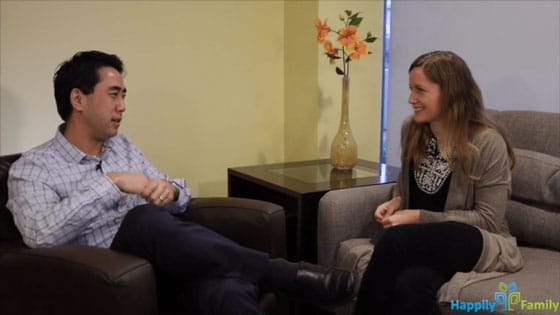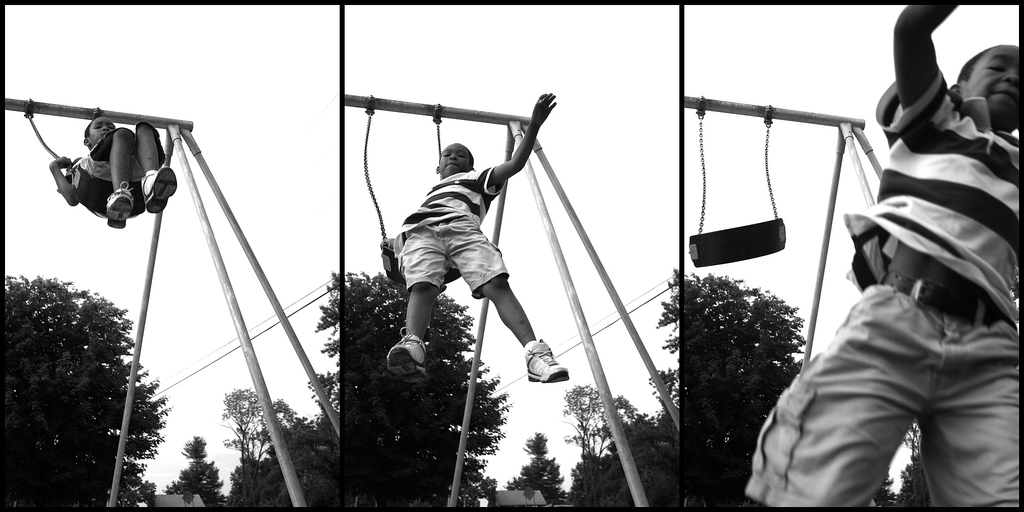During a family car ride once when I was little, I got really mad at my big brother.
I remember wanting to punch him!
I didn’t hit him, but when we were close to home, we pulled into the driveway.
I jumped out and, instead of taking my anger out on someone else, I slammed the front door of the house really hard!
My dad yelled at me.
At the time, I wanted to say, “Isn’t slamming the door a better choice than hitting my brother?”
The one feeling that parents probably struggle most with their kids is when their kids are angry.
Something that Jason and I didn’t understand until recently is the surprising purpose of anger.
Did you know that anger has a purpose? I didn’t! Until I sat down and talked to our friend, Dr. Joseph Lee.
In this 3-minute video, Dr. Joseph Lee explains the purpose of anger.
Now that you understand the purpose of anger. Let’s talk about how to respond to anger.
Typical Responses
Here are some ways that parents typically respond to angry kids:
- Invalidation “You don’t need to be upset about something so little.”
- Blame “She wouldn’t have treated you that way if you’d been nicer to her.”
- Justification “You can’t always get what you want. Life isn’t fair.”
- Frustration “I’ll give you something to cry about.”
- Parental Anger “Stop doing that right now!”
- Rejection “Go to your room until you’re done crying.”
It’s easy for these word to slip out in tough times. The issue with these typical responses above is that none of them address the purpose of anger or addresses it effectively. None of the responses above convey understanding or empathy.
Respond with Empathy
Here are what responses with empathy could sound like:
- Validation “You are upset. That makes sense to me.” (Note: You don’t have to agree with how she’s behaving, in order to understand her feelings.)
- Observation “You were trying to win the game, but she came in first.”
- Explanation “You were really looking forward to eating that cereal for breakfast and we didn’t have any left.”
- Understanding “This is tough.”
- Limit setting “It’s ok to be mad. I’m not willing for you slam the door.”
- Offering Support “What’s wrong? I’m here to help.”
Unless we respond with empathy our words might increase our child’s anger OR teach our kids to bottle up their feelings.
My mom used to say, “Feelings aren’t right or wrong. They just ‘are’.” Anger isn’t “wrong”. It’s a cry for help. It’s how we respond to the “cry” that matters.
As parents our job is to help our kids express their feelings–a beautiful rainbow of emotions–in ways that work for them and other people around them.
Next time your child has an upset which one of these responses are you going to use? Tell us which of 1 through 6 that you will do, in the comments below. I’m going to do #6.










Great recommendations. Working through daily conversations with my 9 year old daughter who wants her independence is a challenge and sometimes exhausting. I seem to get frustrated instead of letting my patience show. As a single mom it’s hard to spend enough time with her & have patience while I have so much to do! This is a great article to help me get there!
Sounds like you’re carrying a lot of weight on your shoulders, it makes sense that you’d be frustrated and tired. Be gentle with yourself, Debbie! Glad you liked the article!
Dr. Willis, you hit the nail on the head! Amen, sister!
This is such a wonderful explanation, Dr. Willis. Thank you for sharing it here. I like what you’ve said because when we answer the question of “what purpose does the behavior have” it also leads us to empathy for our kids.
I think you and I are kindred spirits!
My 2 old used to be a great sleeper. Since her brother was born (6 weeks ago) she has regressed significantly. She throws large tantrums and rips her diaper off, refusing to go to sleep. How can I deal with this issue?
Sleeping issues can be complex, especially with the addition of a second child. Some questions I would be asking myself in your situation are: What is happening earlier in the day and right before the tantrum? Is my daughter getting enough one-on-one connection time? What is happening during bedtime, is the routine the same or different from before the baby came? Trust your instincts, move slowly. Having a new baby in the house takes adjusting for everyone.
This is perfect for me today. I’ve been butting heads with my boys a lot the last couple of days. Where is the line between Respect and disrespect? When it comes to talking back.
Becky, great question. If a child is talking in a way that doesn’t meet my need for respect, I usually say something like, “Wow, I had no idea that you felt so passionately about that. Tell me more.” Once the child feels heard, knows that I’m on his side, then his anger and disrespect will melt! Try it and let me know how it works! xox
Oh my god, that’s genius! I need to use that with her DAD too! lol
YES! Really works well with adults! xox!
Wow! I found this incredibly eye-opening… I’ll be thinking about this perspective on anger for a while. Something that really strikes me is that it’s not just my kids I can use this spotlight on – but also my spouse, heh heh. ;) Thanks for this interesting turn of thought!!
Shelby, so true! That’s the secret, isn’t it? It works for anyone!! Have fun with your new super power! Heh heh!